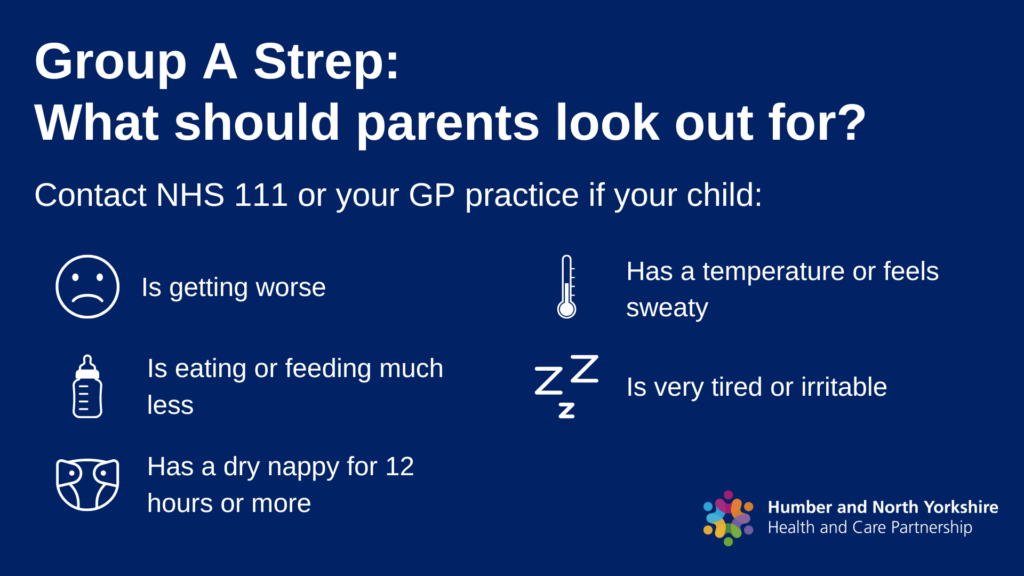Parents are being urged to be alert for the signs of Strep A infections. This is also known Group A streptococcal (GAS) or invasive Group A streptococcal (iGAS) infections.
Especially in winter, there are a range of causes of sore throats, colds and coughs caused by viruses that will get better by themselves without needing antibiotics or medical intervention, meaning it not being necessary to contact your GP surgery.
The link below gives parents and carers some useful guidance on sore throats, how to treat them and what to look for if the symptoms seems to be getting worse:
Occasionally, Strep A can lead to more serious illnesses like scarlet fever and, albeit rarely, very serious disease such as sepsis, Pneumonia or bone infections.
Across the area there has been an increase in cases this year, particularly in children under 10. Nationally, there have sadly been some deaths. We want parents to know what to look out for and when to seek medical care.
- If your child has a fever, sore throat, or fine red or pink rash that feels rough (like sandpaper) read our advice below.
- If your child seems more unwell than usual or if your child is getting worse or this illness is different to their normal coughs and colds, please seek medical attention.
What to do if you suspect your child has scarlet fever
Scarlet fever mainly affects children under 10, but people of any age can get it. In the early stages, symptoms include a sore throat, headache, and fever, along with a fine, pinkish or red body rash with a sandpapery feel. On darker skin, the rash can be more difficult to detect visually but will have a sandpapery feel.
We are asking parents to contact their GP if they suspect their child has scarlet fever, because early treatment with antibiotics is important to reduce the risk of complications such as pneumonia or a bloodstream infection.
Parents should contact their GP if they feel:
- their child is getting worse
- their child is feeding or eating much less than normal
- their child has had a dry nappy for 12 hours or more or shows other signs of dehydration
- their baby is under 3 months and has a temperature of 38°C, or is older than 3 months and has a temperature of 39°C or higher
- their baby feels hotter than usual when they touch their back or chest, or feels sweaty
- their child is very tired or irritable.
Call 999 or go to the Emergency Department if
- your child is having difficulty breathing – you may notice grunting noises or their tummy sucking under their ribs
- there are pauses when your child breathes
- your child’s skin, tongue or lips are blue
- your child is floppy and will not wake up or stay awake.
- Don’t put off seeking help if your child continues to get worse.
Strep infections are spread by close contact with an infected person and can be passed on through coughs and sneezes.
Please consider that emergency departments and GP surgeries are very busy. If you feel that your child can stay at home or be seen elsewhere, such as a pharmacy, please do so.
Know what to look for and when to seek medical care. Go to https://humberandnorthyorkshire.org.uk/strepa/
For further information on scarlet fever, visit UKHSA update on scarlet fever and invasive Group A strep – GOV.UK (www.gov.uk)



